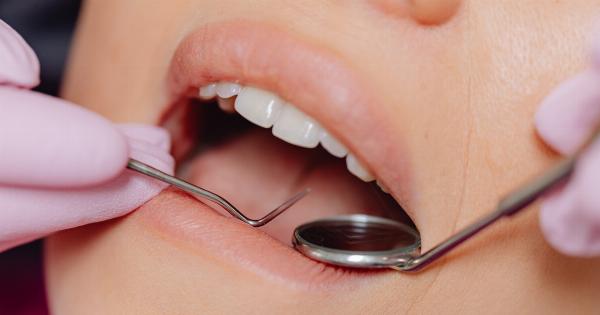Egg freezing, also known as oocyte cryopreservation, is a groundbreaking technology that allows women to preserve their fertility by freezing their eggs for future use.
This procedure offers hope to women who may want to delay their plans for starting a family due to personal or medical reasons.
The Science Behind Egg Freezing
Egg freezing involves the extraction of a woman’s eggs, followed by their cryopreservation in a laboratory. The eggs are carefully treated and frozen at extremely low temperatures to maintain their viability.
When the woman is ready to conceive, the frozen eggs are thawed, fertilized with sperm in a laboratory, and implanted into the woman’s uterus through in vitro fertilization (IVF).
Why Do Women Choose to Freeze Their Eggs?
There are various reasons why women choose to freeze their eggs:.
1. Career Pursuits
Many women want to focus on their careers in their prime reproductive years before starting a family. With egg freezing, they can delay conception and have children when they are ready.
2. Medical Reasons
Chemotherapy or radiation treatments for cancer can potentially harm a woman’s eggs or compromise her fertility. Freezing eggs before undergoing such treatments offers a chance to preserve fertility and have biological children in the future.
3. Delayed Marriage
Changing social dynamics have led to more women delaying marriage and childbearing. Egg freezing provides these individuals with the option to delay childbirth without worrying about declining fertility with age.
4. Genetic Conditions
Women with genetic conditions that may affect their fertility sometimes opt for egg freezing to ensure that they have the opportunity to have genetically related children later in life.
The Process of Egg Freezing
The process of egg freezing involves several steps:.
1. Ovarian Stimulation
The woman undergoes hormonal therapy, typically involving injections, to stimulate her ovaries to produce multiple eggs. Regular check-ups and monitoring are required to assess the development of eggs.
2. Egg Retrieval
Eggs are retrieved through a minor surgical procedure called transvaginal ultrasound aspiration. A needle is inserted into the ovaries, guided by ultrasound, to collect the mature eggs. The procedure is performed under monitored anesthesia care.
3. Egg Freezing
The retrieved eggs are rapidly cooled to prevent the formation of ice crystals, which could potentially damage the eggs.
They are then cryopreserved using a process called vitrification, which involves placing the eggs in liquid nitrogen at extremely low temperatures.
4. Storage
The frozen eggs are stored in cryogenic tanks, where they can remain for several years. The storage period does not significantly impact the quality or viability of the eggs.
Efficacy and Limitations of Egg Freezing
Egg freezing offers a promising option for fertility preservation, but it is important to understand its limitations:.
1. Success Rates
The success of egg freezing depends on various factors, including the woman’s age at the time of freezing. Younger women tend to have better outcomes, as younger eggs have a higher chance of successful fertilization and implantation.
2. Quantity of Eggs
The number of eggs retrieved and frozen can significantly impact the success of the procedure. Generally, a higher number of frozen eggs increases the chances of achieving a successful pregnancy.
3. Age-Related Factors
While egg freezing offers a way to preserve fertility, it does not halt the natural aging process. As a woman ages, the quality and quantity of her eggs decrease, which can affect the chances of a successful pregnancy even with the use of frozen eggs.
Conclusion
Egg freezing provides women with a viable option for preserving their fertility and having children when the time is right for them. With advancements in technology and medical knowledge, the future of fertility preservation looks promising.
It is crucial for women to consult with fertility specialists and understand their individual circumstances before making a decision about egg freezing.































